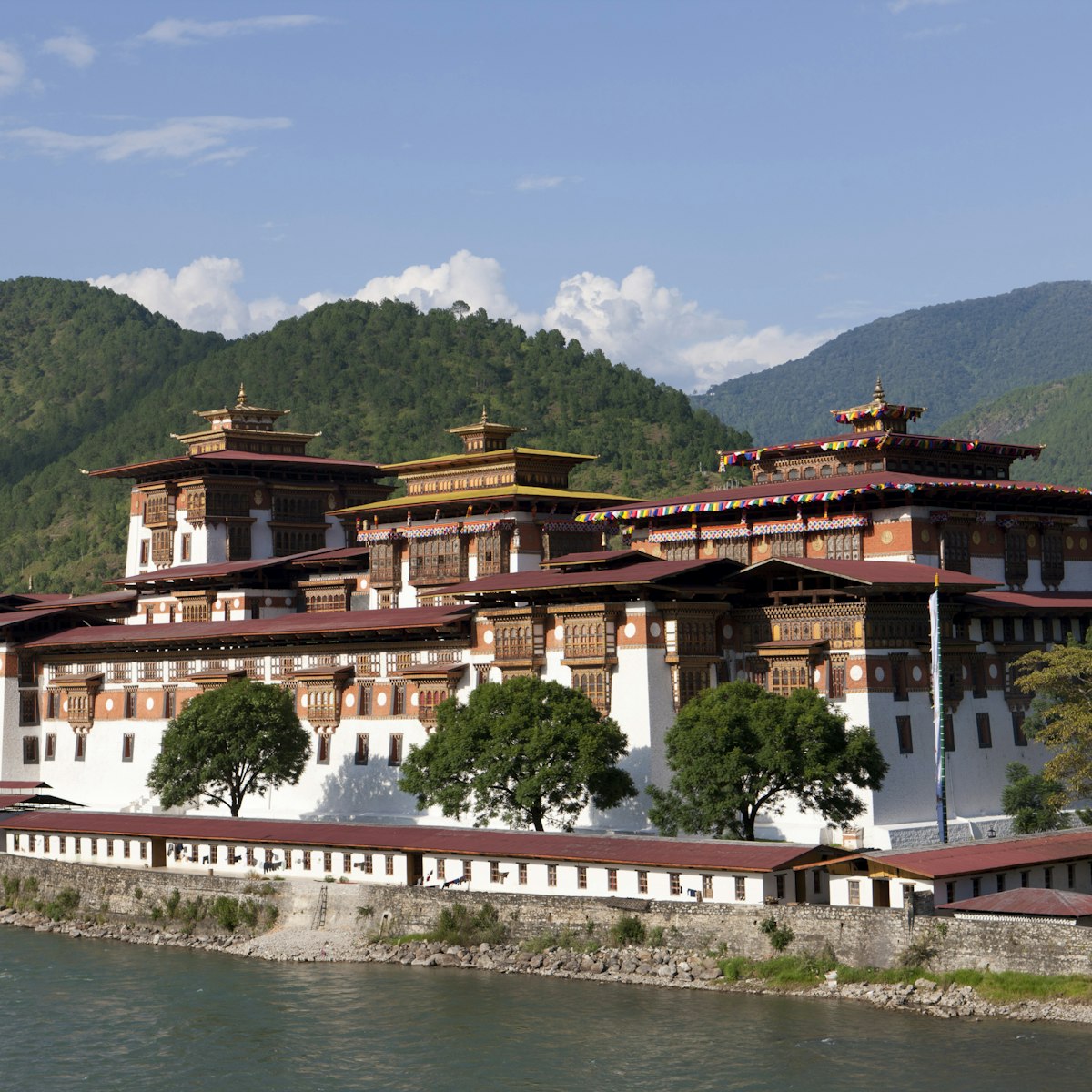This small workshop in the Dop Shari valley northeast of Paro town is worth a visit to see how traditional paper is made from local daphne and edgeworthia bushes. You'll see the steps of soaking, boiling, sorting, pounding and laying out the paper on a bamboo screen and then compressing and drying the sheets, a process that takes three days.
The factory is 2km from the turn-off on the road to the National Museum down a rough road; turn left at the chorten. On the hillside behind the factory is the intriguing Singye Drak temple dedicated to the protector Sengdongma.






